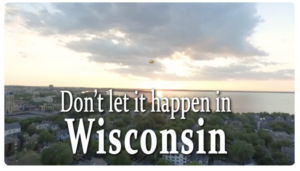Voters will decide the fate of more than 150 ballot measures next week. We already wrote about the key school choice measures in Nebraska, Colorado, and Kentucky. Here are some other highlights and lowlights:
WASHINGTON STATE – Democrats have dominated the Evergreen State for decades (the last GOP governor was elected in 1980). But voters have often approved conservative ballot initiatives, and four of them will be on this year’s ballot. One would prohibit state and local governments from restricting access to clean natural gas while another would end a carbon tax credit program designed to reduce greenhouse gas emissions. Another would allow people to opt out of paying an existing tax that pays for long-term health care.
The most important vote will be on a repeal of the state’s new excise tax on capital gains over $250,000. The new levy has already prompted a stream of wealthy people such as financial advisor Ken Fisher to leave the state.
MINIMUM WAGE – California voters will be asked if they gradually want to lift the state’s minimum wage to $18 per hour, while voters in Alaska and Missouri will be asked whether they want it raised to $15 per hour.
In Arizona, voters will decide on a constitutional amendment that would allow tipped workers to be paid 7% percent less than the current wage of $11.35 per hour.
RENT CONTROL – California is in the midst of a housing affordability crisis. Progressives want to make it worse by repealing a law that prevents cities from imposing residential rent control or barring landlords from charging new tenants higher rents.
ELECTION RULES: Voters in Colorado, Idaho, Nevada, Oregon and Washington, D.C. will decide whether to establish ranked-choice voting, a scheme that complicates elections and disenfranchises some voters. Alaskans will decide whether to repeal their existing ranked-choice system. Voters in Arizona, South Dakota, and Montana will decide whether to end partisan primaries.
NON-CITIZEN VOTING: There are measures in eight states to ban non-citizen voting in elections. They are Wisconsin, Iowa, Idaho, Missouri, Oklahoma, Kentucky, North Carolina and South Carolina. Non-citizen voting is already illegal at the federal level, but cities in several states allow non-citizens to vote in local races. The League of Women Voters and 33 left-wing groups are actively opposing the measures.
For more information on these and other ballot initiatives that will be voted on next Tuesday go to the Americans for Tax Reform or Ballotpedia

